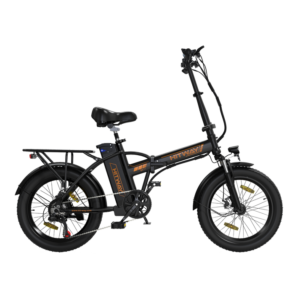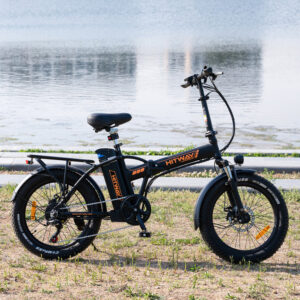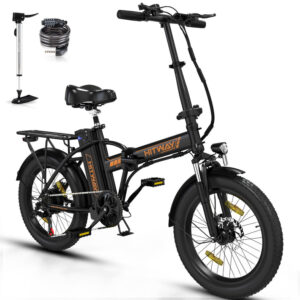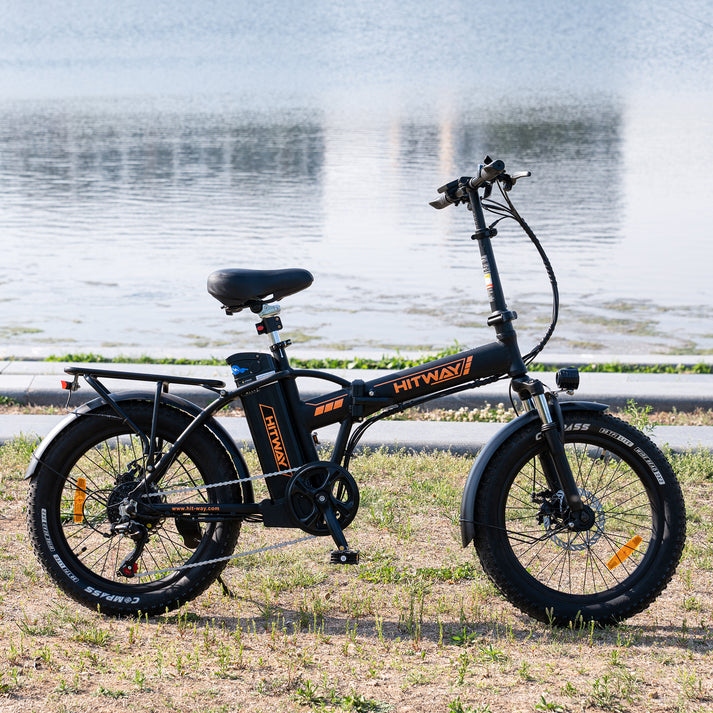In recent years, electric bikes have rapidly gained popularity globally. With long-lasting batteries capable of covering distances of up to 50 miles, they have become a practical and efficient mode of transportation for many. Their environmentally friendly nature, lower maintenance costs, and the convenience of reduced reliance on fuel have made them a strong alternative to traditional motorcycles and even cars. In Nigeria, where the ongoing fuel crisis and skyrocketing transportation costs have left many searching for more affordable, sustainable solutions, electric bikes could emerge as a transformative market solution.
As the world shifts towards cleaner, more sustainable energy solutions, the electric bike market is poised for growth, particularly in countries like Nigeria. Here, the electric bike could serve as a key alternative to gasoline-powered motorcycles and cars, offering benefits in both cost savings and environmental preservation. Though initially not cheap, electric bikes offer significant savings over time and could help address some of the critical transportation challenges that Nigerians face today.
The Fuel Crisis in Nigeria: A Catalyst for Change
Nigeria has long struggled with fuel shortages, price hikes, and a lack of stable supply, all of which affect citizens daily. This lingering fuel crisis has become a significant burden on Nigerians, with many households and businesses facing unpredictable transportation costs. Rising fuel prices make it increasingly difficult for individuals to own and operate personal vehicles. Furthermore, fuel scarcity has left many commuters reliant on motorcycles and commercial transportation, which are often affected by erratic fuel availability and higher fares.
For many Nigerians, the cost of commuting via traditional vehicles has become prohibitive. Commercial motorcycle services, commonly known as okadas, are popular in urban areas, but they often come with high fares and safety concerns. With long daily commutes and limited public transportation infrastructure in many parts of the country, electric bikes could offer a cost-effective and convenient alternative.
Why Electric Bikes?



Electric bikes, though still emerging in many markets, have several advantages that make them an appealing option for Nigerians. Here are some of the reasons why electric bikes can revolutionize personal transportation in Nigeria:
• Cost Savings
One of the most immediate benefits of electric bikes is their low running costs. The price of electricity to charge an electric bike is far less than the cost of filling up a fuel-powered bike. The cost per mile to operate an electric bike is significantly lower compared to conventional motorcycles, which rely on gasoline. For a country like Nigeria, where fuel prices are often volatile, electric bikes can offer a predictable and more affordable transportation option.
• Long-Lasting Batteries and Efficient Range
A major concern for electric vehicle adoption has always been the limited range, but electric bikes have come a long way in terms of battery technology. With advanced lithium-ion batteries, many electric bikes now offer ranges of up to 50 miles on a single charge, making them suitable for daily commutes. In Nigerian cities, where the average daily commute is usually within 10-20 miles, the long-lasting battery of an electric bike is more than enough to meet most people’s needs.
• Minimal Maintenance Costs
Traditional motorcycles and cars require regular maintenance, including engine repairs, oil changes, and fuel system maintenance. On the other hand, electric bikes have fewer moving parts, which results in much lower maintenance costs. Electric motors are simpler than internal combustion engines and do not require frequent oil changes or the same level of mechanical upkeep. For Nigerians who often face high mechanic fees and long waits for spare parts, electric bikes provide a welcome change with their ease of maintenance and lower repair costs.
• Environmental Benefits

Electric bikes, by their nature, do not emit harmful pollutants or carbon emissions. In a country where air pollution and environmental degradation are growing concerns, electric bikes offer a cleaner, greener alternative to gasoline-powered vehicles. By adopting electric bikes, Nigeria can contribute to global efforts to reduce greenhouse gas emissions and improve air quality, especially in major urban centers like Lagos and Abuja, which are burdened by traffic congestion and pollution.
• Reduced Reliance on Fuel
Nigeria, being an oil-producing nation, paradoxically faces an unstable fuel supply. The constant fuel shortages, long queues at filling stations, and rising fuel prices have made it increasingly difficult for the average Nigerian to rely on traditional fuel-powered vehicles. Electric bikes, which only need electricity to operate, provide a solution that does not depend on the erratic fuel supply. By using locally sourced electricity to charge bikes, Nigerians can lessen their dependence on imported fuel and avoid the uncertainty of fuel crises.
• Accessibility and Convenience
One of the attractive features of electric bikes is their accessibility. They require less physical effort to ride compared to conventional bicycles, making them suitable for a wider range of individuals, including those who may not be in the best physical condition. Many electric bikes come with pedal-assist features, allowing riders to engage the motor when needed, making it easier to navigate hilly terrain or long distances. In Nigeria, where traffic congestion is a major issue, electric bikes can easily maneuver through crowded streets, offering a faster and more efficient travel option than cars or motorcycles.
• Supporting Local Businesses and Job Creation
The rise of electric bikes in Nigeria could also provide a boost to the local economy. The demand for electric bikes would lead to the creation of new jobs in assembly, sales, maintenance, and charging infrastructure. Additionally, local businesses could take advantage of electric delivery bikes for goods and services, offering an eco-friendly and cost-effective alternative to traditional delivery vehicles.
Addressing the Challenges of Electric Bikes in Nigeria
While the potential of electric bikes in Nigeria is clear, there are still several challenges to be addressed before they can achieve widespread adoption.
• High Initial Cost
One of the main barriers to the adoption of electric bikes is the initial purchase price. Despite the long-term savings, the upfront cost of electric bikes can be considerably higher than that of conventional motorcycles. However, as the technology advances and local manufacturing capabilities increase, it is expected that the cost of electric bikes will decrease over time, making them more affordable for the average Nigerian.
• Lack of Charging Infrastructure
For electric bikes to become truly viable, Nigeria will need to establish a robust network of charging stations. At present, the infrastructure for charging electric vehicles is limited, and many Nigerians may not have easy access to electricity for charging at home. Building a network of public charging stations, particularly in urban areas, will be essential to making electric bikes a practical transportation solution.
• Awareness and Education
The concept of electric bikes is still relatively new to many Nigerians. There is a need for awareness campaigns to educate the public about the benefits of electric bikes, how they work, and the advantages they offer. Additionally, there must be incentives for individuals to make the switch, such as subsidies or tax breaks for purchasing electric bikes.
• Battery Life and Replacement
While electric bike batteries are designed to last for several years, eventually, they will need to be replaced. The cost of replacing an electric bike battery can be significant, which may discourage some potential buyers. However, as technology advances, battery prices are expected to decline, and new recycling programs can help mitigate the environmental impact of old batteries.
Conclusion
Electric bikes present a tremendous opportunity for Nigeria. As the country grapples with a persistent fuel crisis, high transportation costs, and environmental concerns, electric bikes offer an affordable, environmentally friendly alternative. While challenges remain, particularly in terms of cost, infrastructure, and awareness, the potential benefits for individuals, businesses, and the environment are immense.
Electric bikes offer a chance for Nigerians to reduce their reliance on fuel, cut costs, and embrace a cleaner mode of transportation. With their minimal maintenance, long-lasting batteries, and low running costs, electric bikes could become an essential part of the transportation landscape in Nigeria in the years to come. It is now up to government bodies, local manufacturers, and consumers to embrace this new wave of transportation and create a more sustainable future for all.





